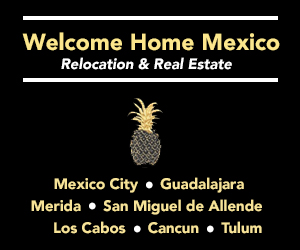Retire in Puebla Guide
Summary: Retire in Puebla with confidence, armed with the knowledge from our extensive guide. It covers critical considerations for retirees, from the cost of living and climate to housing, healthcare, and residency choices in Puebla. We also delve into the social and cultural scene, volunteering options, public transportation facilities, and the city's walkability, helping you make an informed decision.
Puebla, is a popular destination for international retirees due to its rich history, vibrant culture, and affordable cost of living. The city offers a unique blend of modern amenities and traditional charm, making it an ideal place for those seeking a relaxed and fulfilling retirement. However, like any foreign country, retiring in Puebla comes with its own set of challenges, including language barriers and adapting to a new healthcare system.
Cost of Living
The cost of living in Puebla is significantly lower than in many Western countries. This affordability extends to everything from housing and utilities to groceries and dining out. For example, a three-course meal at a mid-range restaurant can cost as little as $10. This makes Puebla an attractive option for retirees on a budget.
Climate
Puebla enjoys a mild climate year-round, with average temperatures ranging from 20 to 30 degrees Celsius. The city experiences a rainy season from May to October, but even then, the rain is usually limited to the late afternoon and evening. This pleasant weather allows retirees to enjoy outdoor activities throughout the year.
Healthcare
Puebla is home to several high-quality hospitals and clinics, many of which have English-speaking staff. The city's healthcare system is modern and efficient, with many doctors trained in the US or Europe. However, it's important for retirees to have adequate health insurance, as private healthcare can be expensive.
Public Healthcare System
International retirees can enroll in Mexico's public healthcare system, known as the Instituto Mexicano del Seguro Social (IMSS). However, the process can be complex and time-consuming, and the quality of care can vary. Many retirees choose to use a combination of private insurance and public healthcare.
Residency Options for Retirees
Retirees can apply for a temporary or permanent resident visa, depending on their circumstances. Both options require proof of financial self-sufficiency, and the permanent visa also requires a demonstration of ties to Mexico, such as owning property or having family in the country.
Parks and Recreational Activities
Puebla offers a wealth of recreational activities for retirees. The city is home to numerous parks, including the popular Parque Ecologico, which features walking trails, picnic areas, and a zoo. There are also several golf courses and sports clubs in and around the city.
Restaurants
Food lovers will be spoilt for choice in Puebla. The city is known for its culinary scene, with a wide range of restaurants serving everything from traditional Mexican cuisine to international dishes. Some popular options include El Mural de los Poblanos, La Casa de Frida, and La Zanahoria.
Learning the Language
While many people in Puebla speak English, learning Spanish can greatly enhance your retirement experience. There are several language schools in the city, including the Spanish Institute of Puebla, which offers intensive Spanish courses for all levels.
Local Culture
The locals in Puebla are known for their friendliness and hospitality. The city has a strong sense of community, with numerous festivals and events throughout the year. However, it's important to respect local customs and traditions, especially in more rural areas.
Market Experience
Puebla has a vibrant market scene, with the Mercado El Parian being a popular choice for both locals and tourists. Here, you can find everything from fresh produce and local delicacies to handmade crafts and clothing.
Meeting People and Volunteering
Meeting new people is easy in Puebla, with numerous social clubs and organizations catering to international retirees. Volunteering is also a great way to get involved in the community. Organizations such as the Puebla Food Bank and the Puebla Animal Shelter are always looking for volunteers.
Housing Options
Retirees in Puebla have a wide range of housing options, from modern apartments in the city center to traditional houses in the suburbs. Many retirees choose to live in the historic center, which offers easy access to amenities and attractions.
Transportation
Puebla has an extensive public transportation system, including buses and taxis. The city is also very walkable, with many retirees choosing to get around on foot or by bicycle. However, having a car can be useful for trips outside the city.
About the Author
 Betsy Burlingame is the Founder and President of Expat Exchange and is one of the Founders of Digital Nomad Exchange. She launched Expat Exchange in 1997 as her Master's thesis project at NYU. Prior to Expat Exchange, Betsy worked at AT&T in International
and Mass Market Marketing. She graduated from Ohio Wesleyan University
with a BA in International Business and German.
Betsy Burlingame is the Founder and President of Expat Exchange and is one of the Founders of Digital Nomad Exchange. She launched Expat Exchange in 1997 as her Master's thesis project at NYU. Prior to Expat Exchange, Betsy worked at AT&T in International
and Mass Market Marketing. She graduated from Ohio Wesleyan University
with a BA in International Business and German.
Some of Betsy's articles include 12 Best Places to Live in Portugal, 7 Best Places to Live in Panama and 12 Things to Know Before Moving to the Dominican Republic. Betsy loves to travel and spend time with her family. Connect with Betsy on LinkedIn.




